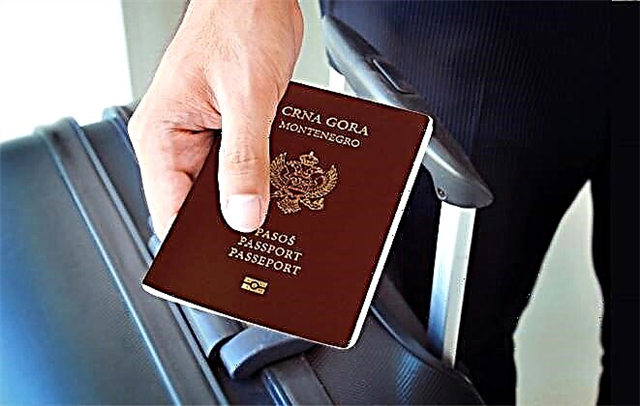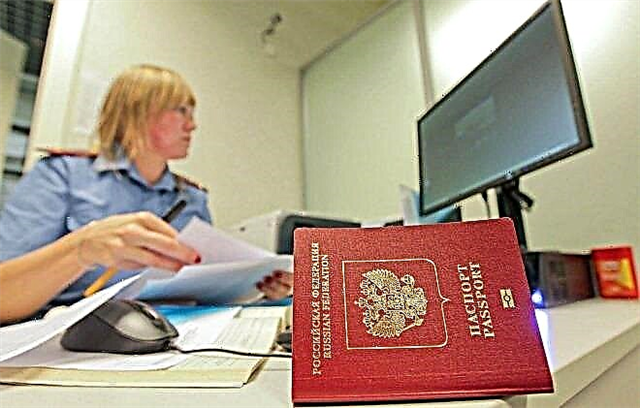Dual citizenship in Russia first became the subject of widespread discussion in 1992. The law passed by the parliament significantly changed the status of bipatrides in the country, but after many years this topic still raises many questions.

General information
Before answering the question of whether it is possible to have two citizenships in Russia, you should first understand the theory.
Bipatrism, as dual citizenship is also called, came to our legal system from Roman law. It determines the position of a person who simultaneously has a stable legal connection with two different states at once. Bipatrism has a complex legal structure and may have different forms of expression in different countries. For example, multiple citizenship in Russia is subject to the exclusive will of the citizen, while in other states this may require permission from the authorities.
It is worthwhile to immediately understand: "dual" and "two" citizenship are different concepts. From a legal point of view, the presence of passports of two states at once does not allow talking about dual citizenship. It can arise only if there is a special contractual framework between countries.
In other cases, the citizen will have to decide which country to choose and whose citizen to represent. If national legislation does not prohibit having a second passport, then in any case the principle of a sleeping indigenous (citizenship) is applied.
In accordance with it, the subject, despite having several passports, is considered by each state exclusively as its citizen with certain civil obligations and rights. If the authorities are aware of his dual civil status, he will be somewhat limited in his powers. For example, a citizen of the Russian Federation cannot have the citizenship of a foreign state and at the same time be elected to parliament. This approach is practiced by most states that are considered to have legalized bipatrism.
What is dual citizenship
Dual is different from multiple citizenship. In contrast to the above-described principle, dual citizenship is possible only if there is an international legal basis between states on mutual recognition. For example, the agreement between Great Britain and the countries of the British Commonwealth with which they are historically close. The fact is that such dual citizenship, based on a treaty, presupposes the recognition by both states of the dual status of a citizen.
This entails certain legal consequences for the bipatrid, which the contracting countries also indicate in the agreements. For example, it may be established that his rights and obligations arise in relation to the state in which he has a permanent residence.
Therefore, the answer to the question whether Russia recognizes dual citizenship depends on whether it has relevant treaties. We will discuss this below.
Dual citizenship can also arise on the basis of national legislation. For example, in Spain, the law expressly stipulates the right of citizens to acquire passports of Ibero-American and some Latin countries, in addition to the states with which agreements have been concluded.
Is triple citizenship permissible
Whether it is possible to have three citizenships is a rhetorical question. If the legislation of states does not prohibit dual citizenship and does not provide for penalties for bipatrides, a person can be a citizen of as many countries as he wishes. Moreover, its legal status, again, will depend on the agreements that states have.
If they are not there, each of these countries may require the bipatrid to perform civic obligations stipulated by national legislation. For example, serving in the army, paying taxes, and so on.

Now it's time to figure out how many citizenships you can have in Russia.
Two citizenships for Russians
According to the latest official data, there were about 6 million bipatrides in Russia who, in parallel with the Russian one, had passports of other states, while living on Russian territory. It is difficult to talk about more accurate figures, since not everyone has declared their second passport, and data on Russian bipatrides living abroad are generally absent. Are they breaking the law?
To fully answer the question of whether it is possible to have dual citizenship in Russia, Art. 62 of the Constitution. It states that Russians have every right to become citizens of other countries in accordance with the law or international agreement. Even if they acquired a foreign indigenous person not in accordance with the law or agreement, this will not entail the loss of the rights and obligations that have arisen for such persons as citizens of Russia.
Federal Law No. 62 of May 31, 2002 specifies whether there can be dual citizenship in Russia. In accordance with Art. 6 ФЗ № 62, if legislation or an international agreement with the Russian Federation does not provide otherwise, then a bipatride with a Russian passport is considered by the state exclusively as a citizen of Russia - the principle of a sleeping indigenous person is applied. It is also indicated that the acquisition of foreign citizenship does not entail the loss of Russian citizenship. That is, Russians who have received foreign passports do not lose ties with Russia.
A different answer to the question whether dual citizenship is prohibited in Russia is provided for naturalized residents of the Russian Federation. In accordance with subparagraph d) of paragraph 1 of Art. 13 of the Federal Law No. 62, foreigners wishing to become citizens of Russia by way of admission are obliged to abandon the existing passports of other states. Such a refusal is not required if it is provided for by an international agreement, federal law, or is impossible for reasons beyond the control of the person (for example, if such a refusal is not provided for by the legislation of another country).
Thus, it will not work to answer unequivocally whether dual citizenship is allowed in Russia or not - it all depends on the procedure for acquiring an indigenous person.
If a foreign passport is the second for a Russian, he will not lose Russian citizenship and will become a bipatride. In the opposite situation, when a foreigner acquires a Russian passport, he is obliged to renounce another citizenship, because by law it cannot be a bipatride.
Recall that Russian citizenship and dual citizenship with it can be obtained only if it is indicated in the law or in an international treaty. In all other cases, bipatrides can only have a second, but not dual citizenship. Does the Russian Federation have such agreements? Let us dwell on this in more detail.
International agreements of the Russian Federation on dual citizenship
Russia really has the practice of signing such agreements. The first such agreement was signed on December 23, 1993 and determined the dual citizenship of Russia and Turkmenistan. It allowed hundreds of thousands of ethnic Russians living in Turkmenistan to be citizens of two countries at once.
However, the document was fully valid for less than 10 years. Against the background of the strengthening of nationalist views in Turkmenistan, on April 10, 2003, a protocol on the termination of the Agreement was signed in Moscow. After that, all bipatrides residing in the Turkmen territory had to choose, within 2 months, whose citizens they wish to remain.
But there are other countries that have dual citizenship with Russia in the classical form. For example, Tajikistan. An agreement on the settlement of bipatrism issues with this state was signed on September 7, 1995 and entered into force in April 1997. Today it is the only valid international document of this kind in the Russian Federation. He identified some of the features of the legal status of bipatrides.
The treaty on dual citizenship of the Russian Federation and Tajikistan establishes that persons who are citizens of these two states at once enjoy the rights and obligations of the country in which they have permanent residence. That is, a Russian living in Tajik territory and having a Tajik passport is recognized as a citizen of the Russian Federation, but he can use civil rights and obligations only under the legislation of Tajikistan. A similar rule applies to Tajiks living in Russia and receiving Russian passports.

RF legislation on bipatrism does not allow holders of Russian-Tajik citizenship to simultaneously exercise the rights and obligations granted by both countries. However, this does not apply to diplomatic protection and patronage: bipatrides can receive them from each country of their nationality, wherever they are. As for the children, they automatically acquire the Russian-Tajik indigenous people if both parents have dual citizenship.
Thus, Tajikistan is the only example of a country with dual citizenship with Russia. The Russian Federation has repeatedly raised the issue of dual citizenship with Belarus, Ukraine and other countries of the post-Soviet space, but it never came to the signing of agreements, they remained projects. In 2021, it was reported about the preparation of such an agreement with partially recognized Abkhazia.
In what cases can citizens of the Russian Federation become bipatrides?
Taking into account all the above-described features, a citizen of the Russian Federation has the right to dual citizenship, but only with Tajikistan. In all other cases, it can only be a second indigenous person who will not be recognized by Russia and will not affect the scope of civil rights and obligations.
A second citizenship for a Russian can arise in different cases:
- upon naturalization in another country, if its national legislation does not require renunciation of the existing citizenship;
- at birth from bipatrides or citizens of different states;
- when repatriating to the homeland of ancestors (for example, to Israel);
- when changing state borders (for example, as was the case in Crimea in 2021, when Crimeans acquired Russian passports without abandoning Ukrainian ones);
- if it is impossible to refuse a foreign passport in case of naturalization in the Russian Federation.
Having figured out whether there is dual citizenship in Russia, we propose to consider the features that all bipatrides should remember.
Registration of bipatrides in Russia
Let us remind you that the Constitution states that the second passport does not diminish the civil rights and obligations of a Russian. But at the same time, the legislator is sure that for Russians who have foreign passports, the value of political and legal ties with Russia is decreasing. It is believed that if a citizen of the Russian Federation acquired the citizenship of another country, his expression of will will be determined not only by the country and the Russian people, but also by the requirements that arise from him due to belonging to another state.
There is logic in this approach. For example, by becoming a US citizen, a Russian swears allegiance to this country, which may be contrary to Russian interests. Considering the existing geopolitical threats, Russia amended the law on dual citizenship in 2021. Now, in accordance with paragraph 3 of Art. 6 Federal Law No. 62, any Russian who simultaneously became a citizen of a foreign state is obliged to report this to the Russian authorities.
But such an obligation is imposed only on bipatrides located on Russian territory - persons permanently residing outside the Russian Federation are an exception and are not obliged to do so.
This does not mean that citizens must obtain a permit for dual citizenship in the Russian Federation.
The second indigenate is everyone's right, but when a Russian acquires it, the state wants to be aware of this fact.
In addition, the notification procedure is not as cumbersome as it might seem at first glance.
Submitting a notification
Bipatrid is obliged to notify the Russian migration authorities of the acquisition of a foreign indigenous within two months from the date of its acquisition. If he is abroad at this time, registration of a second citizenship in Russia must occur within a month from the moment the subject enters Russian territory.

Registration is carried out by submitting a special notification. The form, procedure for registration and rules for submitting such a document were approved by order of the Ministry of Internal Affairs No. 267 of 03.05. 2021. It must contain:
- applicant's personal data;
- place of his permanent residence;
- available citizenship and documents by which it is confirmed;
- grounds for acquiring a second passport;
The notification of the second citizenship, along with a copy of the foreign passport, is submitted to the territorial division of the Main Directorate of Internal Affairs of the Ministry of Internal Affairs (formerly the FMS) at the place of residence, stay or location of the person. It can be submitted by a citizen in person, through a legal representative or a proxy. Documents can be submitted directly to the migration service or sent there by mail. Submission of a notification via the Internet is not provided, since in this case it will not be possible to verify copies of documents with the originals and verify the authenticity of the applicant's signature.
Responsibility for failure to notify
If the deadline for filing a notification is missed, the citizen will submit false information or it will not be presented in full, the bipatrid runs the risk of being held administratively liable under Art. 19.8-3 of the Administrative Code. Employees of the migration service will draw up a protocol on the violation, after which the citizen can be fined from 500 to 1 thousand rubles.
The consequences of hiding information about the presence of two passports are much worse. Persons who refuse to fulfill the obligation to notify face criminal, rather than administrative, liability. According to Art. 330.2 of the Criminal Code, a bipatride may be fined up to 200 thousand rubles or in the amount of wages (or any other regular income) for a period of up to 1 year. An alternative punishment is compulsory work for up to 400 hours.
We remind you that persons permanently residing outside of Russia will not be subject to such liability prior to their arrival in the Russian Federation.
Admission of bipatrides to the civil service
One of the main restrictions for bipatrides is the prohibition of dual citizenship in Russia for civil servants. This is, by and large, the main reason why Russians have to send notifications about the acquisition of a second passport.
So, according to subparagraph 7 of clause 16 of the Federal Law No. 79 of July 27, 2004, the presence of a passport of a foreign state is an obstacle to admitting a person to the state civil service. In accordance with paragraph 6 of Art. 16 Federal Law No. 79, dual citizenship in the public service is unacceptable: if a citizen received a second citizenship, already being an official, he is subject to dismissal.
It is not recommended for officials to conceal the fact of acquiring a foreign indigenous person. Due to the nature of their service, they are often subjected to checks by the security agencies, and if the fact of concealment of dual citizenship is revealed, the official will not only lose his job, but will also be prosecuted.
Conclusion
Since the abolition of dual citizenship in Russia is not planned in the coming years, as a conclusion, we propose to briefly summarize the pros and cons of bipatrism in Russian. The benefits include:
- the right to visa-free entry, residence, employment and other benefits outside Russia;
- diplomatic protection and patronage not only from the Russian Federation, but also from another state;
- the right to choose whose citizen to represent.
Any other advantages will depend on the citizenship that the Russian will receive as a second. Now the cons:
- a ban on work in government agencies;
- the need to submit a notification;
- the emergence of civil obligations immediately before two states.











